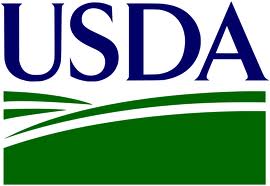 Neither the UCC nor the PACA recognize the term “Price After Sale.” The term is a subcategory of “Open Price.” A.P.S. Marketing, Inc. v. R.S. Hanline & Co., Inc., 59 Agric.154 Dec. 407 (2000), Sucasa Produce v. A.P.S. Marketing, Inc., 59 Agric. Dec. 421 (2000), and Well Pict, Inc. v. Ag-West Growers, Inc., 39 Agric. Dec. 1221, 1227-1228 (1980). See Eustis Fruit Co., Inc. v. The Auster Co., Inc., 51 Agric. Dec. 865 at 877 (1991) (“The term “price after sale” usually contemplates the parties agreeing to a price following the prompt resale of the produce.); Bonanza Farms, Inc. v. Tom Lange Co., Inc., 51 Agric. Dec. 839 at 846 (1991); M. Offutt Co., Inc. v. Caruso Produce, Inc., 49 Agric. Dec. 596 (1990). This fact becomes important because the regulations (other than the rules of practice) under PACA (7 CFR Part 46) (the “Regulations”) do not place a duty to account upon a buyer who purchases on an open basis. Ronnie Carmack v. Delbert E. Selvidge, 51 Agric. Dec. 892 (1992) (emphasis added).
Neither the UCC nor the PACA recognize the term “Price After Sale.” The term is a subcategory of “Open Price.” A.P.S. Marketing, Inc. v. R.S. Hanline & Co., Inc., 59 Agric.154 Dec. 407 (2000), Sucasa Produce v. A.P.S. Marketing, Inc., 59 Agric. Dec. 421 (2000), and Well Pict, Inc. v. Ag-West Growers, Inc., 39 Agric. Dec. 1221, 1227-1228 (1980). See Eustis Fruit Co., Inc. v. The Auster Co., Inc., 51 Agric. Dec. 865 at 877 (1991) (“The term “price after sale” usually contemplates the parties agreeing to a price following the prompt resale of the produce.); Bonanza Farms, Inc. v. Tom Lange Co., Inc., 51 Agric. Dec. 839 at 846 (1991); M. Offutt Co., Inc. v. Caruso Produce, Inc., 49 Agric. Dec. 596 (1990). This fact becomes important because the regulations (other than the rules of practice) under PACA (7 CFR Part 46) (the “Regulations”) do not place a duty to account upon a buyer who purchases on an open basis. Ronnie Carmack v. Delbert E. Selvidge, 51 Agric. Dec. 892 (1992) (emphasis added).
Why is this important to a produce supplier?
As the industry knows, “a PACA supplier must [sell] produce on a cash or short-term credit basis.” Patterson Frozen Foods, Inc. v. Crown Foods International, Inc., 307 F.3d 666, 669 (7th Cir. 2002). As a matter of fact, the Secretary of Agriculture has determined that ‘the maximum time for payment for a shipment to which [parties] can agree and still qualify for coverage under the trust is 30 days after receipt and acceptance.’” 7 C.F.R. § 46.46(e)(2) (emphasis added). Taken together, PACA and the Regulations provide both parties to a sales transaction with the ability to calculate the seller’s last day to perfect its PACA trust rights with the level certainty needed to ensure the credit agreement does not exceed the statutory maximum of 30 day terms.
The Regulations state, in relevant part, that “[f]ull payment promptly’ for the purpose of determining violations of [PACA], means: [p]ayment for produce purchased by a buyer, within 10 days after the day on which the produce is accepted.’” 7 C.F.R. §46.2(aa)(5) (emphasis added). Once the seller delivers its produce to the buyer, both parties possess the immediate ability to calculate two important dates. The first date is the payment due date, which is generally 10 days later.
The second critical date is the seller’s last day to perfect PACA trust rights, which is within 30 calendar days after the expiration of the time prescribed by which payment must be made as set forth in the Regulations. See 7 U.S.C. §499e(c)(3)(i). This means the seller has a 40 calendar days (10 day payment terms + 30 days thereafter to perfect) in which to preserve its PACA trust rights.
A Seller who sells produce with “Open Price” terms or “Price After Sale” terms must preserve its PACA trust rights within 40 days pursuant to 7 C.F.R. §46.2(aa)(5) and 7 U.S.C. §499e(c)(3)(i). This is true even if the parties have not agreed upon a price or the buyer has not provided any type of account of sale. Remember, the buyer in an “Open Price” term contract has no duty to provide the seller with an account of sale because the sales contract becomes valid and binding as soon as the produce is accepted. Also, the uniform commercial code will not allow an otherwise valid and binding contract to fail simply because there either is no agreement on price or there is a dispute as to the price term. See UCC Section 2-305.
Important Take Away: Seller Beware!
An unpaid seller of produce CANNOT sit back and wait for the resolution of any missing price term before it acts to perfect its PACA trust rights. The clock starts ticking on the seller’s ability to preserve its PACA trust rights as soon as the produce is accepted. The failure of the buyer to provide an accounting or the inability of the parties’ to agree upon the proper price will not toll, delay or otherwise modify the calculation of the seller’s last day to preserve its PACA trust rights.
